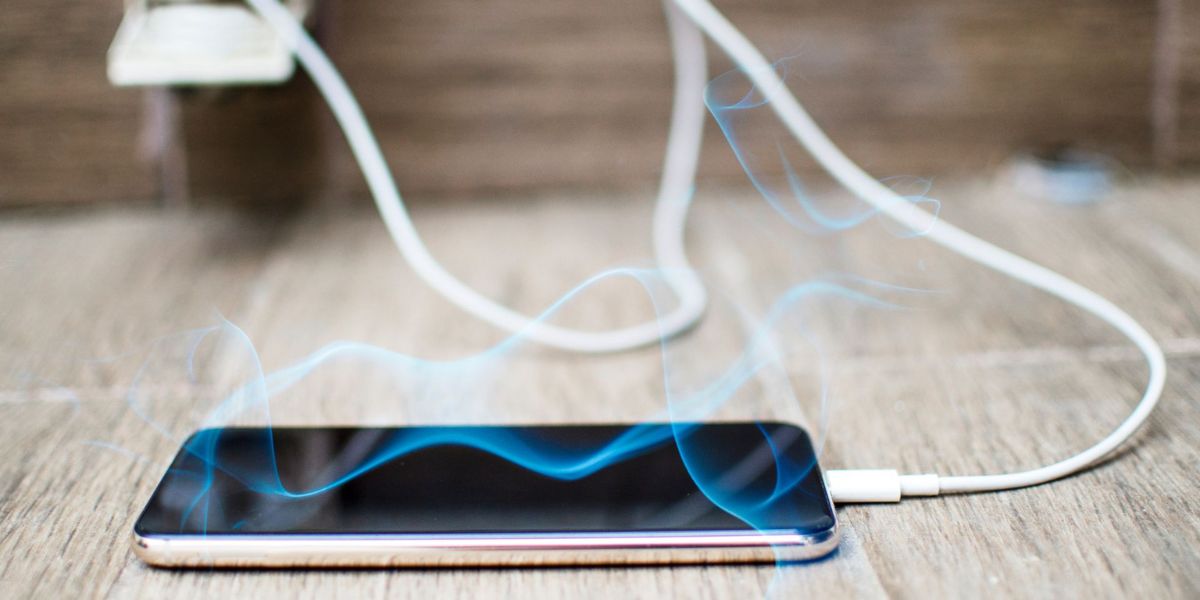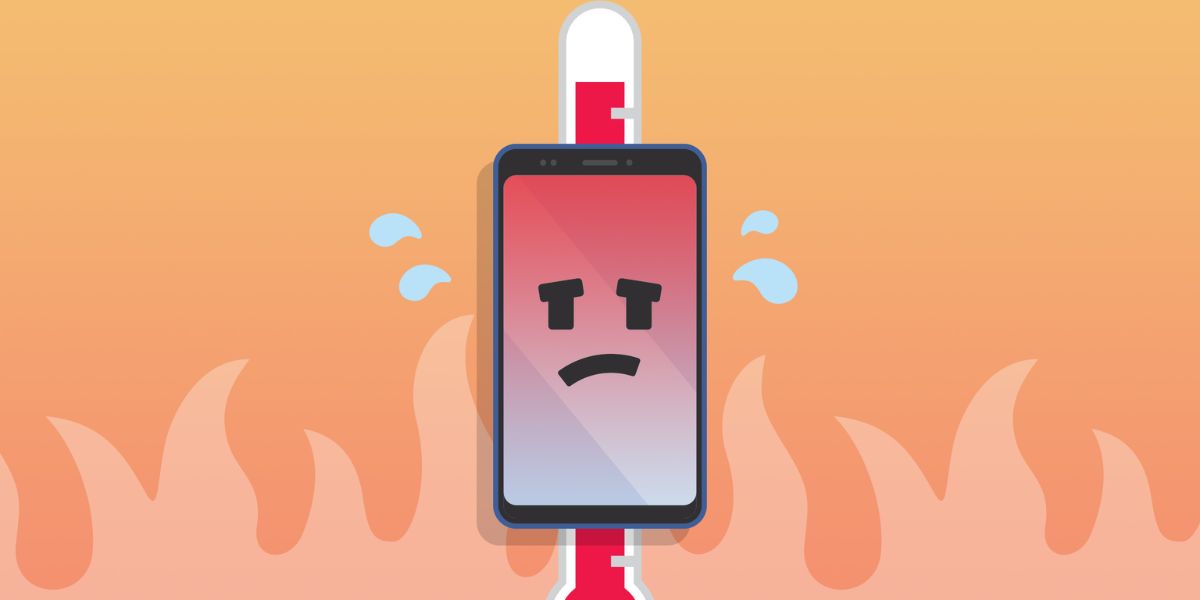Have you ever picked up your phone only to feel it burning hot in your hand? It’s frustrating, isn’t it? Especially when you’re in the middle of something important. As someone living in the UK, where the weather can be unpredictable, you might notice your device heating up more often during those warmer days.
But don’t worry, we’re here to help you understand why phones overheat and guide you through simple steps to cool things down. This issue affects many of us, and with a bit of knowledge, you can keep your phone running smoothly.
Understanding Phone Overheating
Phone overheating isn’t just an annoyance; it can slow down your device, drain the battery faster, and even cause long-term damage if ignored. Think about how your phone works like a mini computer, it has a processor, battery, and software all packed into a small space. When these components work too hard, heat builds up. But why does this happen? Let’s dive into the common reasons for phone overheating so you can spot the signs early.
Environmental Factors Contributing to Heat
One big culprit is the surrounding environment. If you’re out in direct sunlight, say at the beach in Hove during summer, your phone absorbs that heat quickly. High ambient temperatures make it harder for the device to dissipate heat. We’ve seen this a lot with friends who leave their phones on car dashboards or near windows.
To fix this, always keep your phone in a shaded spot or use a protective case that allows airflow. If it’s already hot, turn it off for a few minutes to let it cool naturally.
Intensive Usage and App Overload
Do you love gaming or streaming videos on your phone? These activities push your processor to its limits, generating excess heat. Running multiple apps in the background adds to the strain; your phone is juggling too many tasks at once.
The solution? Close unused apps regularly and limit heavy usage sessions. On Android or iOS, you can check your app manager to see what’s consuming resources and force-stop them if needed.
Battery and Charging Issues
Batteries are at the heart of many overheating problems. An old or damaged battery struggles to hold a charge efficiently, leading to more heat during use.
Phone Overheating While Charging

This is a common complaint: phones overheating while charging. Using a faulty charger or cable can cause irregular power flow, making the battery work harder. Even official chargers might wear out over time. Additionally, using your phone while it’s plugged in doubles the workload.
To address this issue, it is recommended to use only accessories approved by the device manufacturer to ensure compatibility and safety. Additionally, avoid using the device while it is charging, as this can cause overheating. If these steps do not resolve the problem, it may be necessary to replace the battery, which is a quick fix that can restore the device to normal operating temperatures and improve performance.
Signs of Battery Degradation
Over time, batteries lose capacity, and this degradation can manifest as overheating. If your phone is a few years old, this could be the issue. Check your battery health in the settings. On iPhones, it’s under Battery, and on Androids, look for similar options. Replacing a worn-out battery often solves the heat problem and improves overall performance.
Software and System Problems
Sometimes, the issue isn’t hardware, but what’s running on it. Outdated software can have bugs that cause inefficient processing, leading to heat buildup.
The Role of Updates and Malware
Have you updated your phone lately? Skipping updates means missing out on optimisations that help manage heat. Malware or rogue apps can also run in the background, spiking CPU usage. Technicians always recommend running a security scan with a trusted app.
To effectively resolve this issue, it is important to regularly update your operating system and applications to the latest versions, uninstall any suspicious or unknown software, and, as a last resort, consider performing a factory reset after backing up all your important data to prevent data loss.
Background Processes and Settings Tweaks
Features like constant location services or auto-sync can quietly drain your phone’s battery. Turn off unnecessary permissions and adjust brightness to auto; high screen brightness adds to the heat. Simple changes like these can make a significant difference in preventing a phone from overheating with minimal effort.
Hardware Faults and Protective Cases
Not all cases are created equal. Some thick or insulating covers trap heat instead of letting it escape. If you’ve recently added a new case, try removing it to see if the overheating stops. Hardware issues, like a faulty processor or internal damage, are rarer but possible, especially after drops or water exposure.
When to Seek Professional Help
If basic troubleshooting does not resolve the issue, it may indicate an underlying hardware problem. For example, overheating can sometimes cause damage such as a cracked display, which may require professional phone screen repair. In such cases, visiting a service provider like Fone World Hove can help identify and address the fault efficiently.
Preventive Measures for Long-Term Cooling
Prevention is better than cure, right? To avoid overheating altogether, charge in a cool room, avoid extreme temperatures, and give your phone breaks during heavy use. Use airplane mode when the signals are dropping or weak, as searching for a connection heats things up. These habits will extend your device’s life and keep it comfortable to hold.
Monitoring Tools and Apps
There are various applications available in your device’s app store that can monitor the temperature of your phone in real-time, providing you with continuous updates. By downloading one of these apps, you can receive timely alerts before your device overheats, essentially acting like a personal thermometer to safeguard your phone’s health.
FAQs
What should I do immediately if my phone is overheating?
First, stop using it and place it in a cool, ventilated area away from direct sunlight. Turn it off if possible to let it cool down faster.
Can overheating damage my phone permanently?
Yes, prolonged overheating can degrade the battery, affect the screen, or even warp internal components. Addressing it early prevents lasting harm.
Is it normal for phones to get warm during use?
A bit of warmth is normal, especially during demanding tasks, but if it’s uncomfortably hot or affects performance, it’s time to investigate.
How often should I keep a check for software updates to prevent overheating?
Aim to check weekly or enable automatic updates. Developers often release patches that improve efficiency and reduce heat.
Final Thoughts
Dealing with an overheating phone can be stressful, but understanding the reasons for phone overheating and applying these fixes can make all the difference. From environmental tweaks to software updates, most issues are easy to resolve at home. If problems linger, professional help ensures your device stays in top shape.
For reliable smartphone repair services, local providers such as Fone World Hove offer assistance with a range of technical issues. Regular maintenance and timely repairs from one of our experts can help keep your devices functioning properly!
